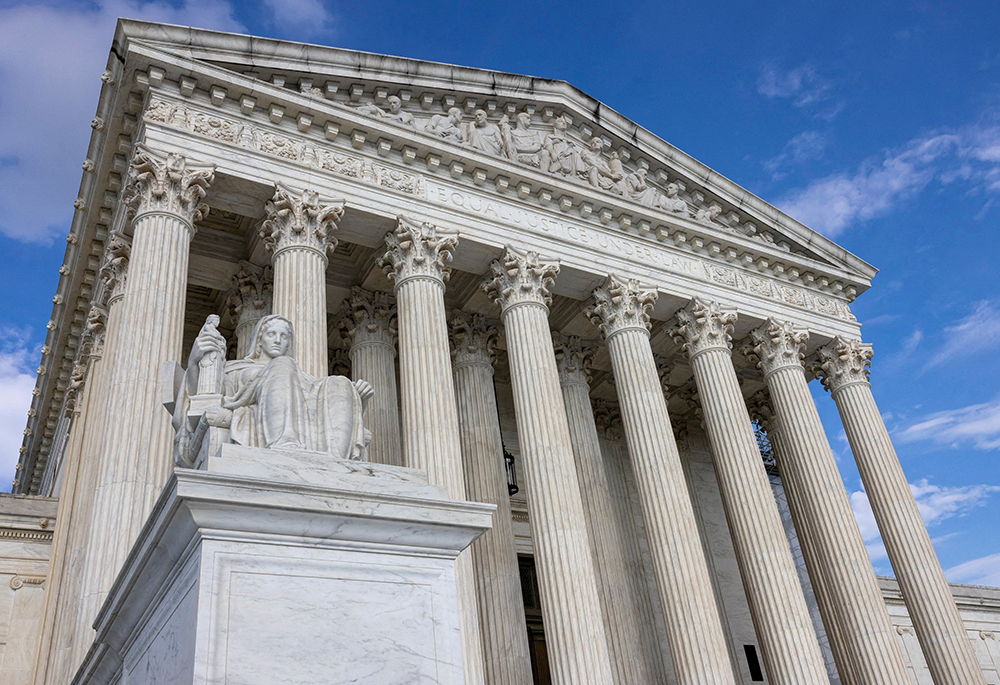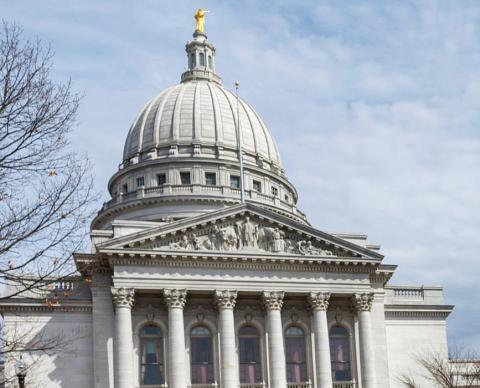
The U.S. Supreme Court is pictured in Washington June 29, 2024. On June 5, 2025, the Supreme Court ruled in favor of Catholic Charities Bureau of the Diocese of Superior, Wisconsin, which had asked the high court to overturn a decision by the Wisconsin Supreme Court the agency argued discounted its religious identity. (OSV News/Reuters/Kevin Mohatt)
In a unanimous ruling that touches on the First Amendment's rights of religious free exercise, the U.S. Supreme Court decided Thursday, June 5, that a Catholic Charities agency in Wisconsin does not have to pay that state's unemployment tax.
Writing for the court, Justice Sonia Sotomayor said it was "fundamental" to the nation's constitutional order that the government maintain "neutrality between religions," and that any state-sponsored denominational preference be subject to strict scrutiny.
"There may be hard calls to make in policing that rule, but this is not one," Sotomayor wrote. "When the government distinguishes among religions based on theological differences in their provision of services, it imposes a denominational preference that must satisfy the highest level of judicial scrutiny."
As the Associated Press reports, the ruling comes in a case filed by the Catholic Charities Bureau in the Diocese of Superior, Wisconsin. The agency had argued that the state violated its religious freedom rights when it required the agency to pay the tax while exempting other faith groups.
"We're grateful the Court unanimously recognized that improving the human condition by serving the poor is part of our religious exercise and has allowed us to continue serving those in need throughout our diocese and beyond," Superior Bishop James Powers said in a statement.
At the heart of Catholic Charities' ministry, Powers said, is "Christ's call to care for the least of our brothers and sisters, without condition and without exception."

The dome of the Wisconsin Capitol in Madison is pictured in an April 2, 2023, photo. (OSV News/Reuters/Evelyn Hockstein)
In Catholic Charities Bureau v. Wisconsin Labor & Industry Review Commission, the Wisconsin Supreme Court ruled in 2024 that the work Catholic Charities performed was not "typical" religious activity, but instead was "wholly secular."
"Such services can be provided by organizations of either religious or secular motivations, and the services provided would not differ in any sense," the majority wrote.
Wisconsin had argued that Catholic Charities didn't qualify for a religious exemption because its day-to-day work — such as helping to provide housing assistance, day care, disability services and vocational training, and educational programs, among other activities — was not inherently religious.
Catholic Charities countered that its programs were in fact motivated by religious beliefs, and argued that the state was wrong to make a determination about what kind of work qualified as religious.
"Wisconsin shouldn't have picked this fight in the first place," said Eric Rassbach, vice president and senior counsel at the Becket Fund, a Washington D.C.-based public interest law firm that specializes in religious liberty and other First Amendment cases.
"It was always absurd to claim that Catholic Charities wasn't religious because it helps everyone, no matter their religion," Rassbach said in a statement. "Today, the Court resoundingly reaffirmed a fundamental truth of our constitutional order: the First Amendment protects all religious beliefs, not just those the government favors."
Advertisement
Jack Fitzhenry, a legal fellow in the Edwin Meese III Center for Legal and Judicial Studies at the Heritage Foundation, a conservative nonprofit organization, also issued a statement praising the court's decision.
"It is heartening to see that the Supreme Court swiftly and unanimously rejected Wisconsin's weak justifications for the state's effort to deprive religious charitable works of their religious character — an effort that clearly discriminated against faiths. Lower courts must take note that First Amendment rights of religion cannot be so easily undercut by hostile state actors," Fitzhenry said.
Wisconsin had argued that a decision in favor of Catholic Charities could open the door to large employers in that state, such as Catholic and other religiously affiliated hospitals, pulling out of the state's unemployment system. Groups such as Americans United for Separation of Church and State filed amicus briefs suggesting that a ruling in favor of Catholic Charities would undermine the country's social safety net with overly broad religious exemptions.
In a statement issued after the June 5 ruling, Americans United for Separation of Church and State said that the case "continues a dangerous trend we've seen from Christian Nationalist legal outfits for more than a decade now.
"From health care access to retirement benefits to antidiscrimination protections and now unemployment insurance, they argue that companies and organizations can simply claim a religious motive in order to sidestep worker protections. If these religious extremists succeed, the mere invocation of religious beliefs will erase important social safety nets and civil rights protections for workers," the group said.
The court's decision in favor of Catholic Charities was consistent with other rulings from the past decade where majorities of the justices interpreted the First Amendment's religious free exercise to include guarantees that taxpayer money in some instances could be diverted to religious schools, or that public high school football coaches can pray on the 50-yard line without fear of losing their jobs.
On May 22, the court deadlocked 4-4 on a case that blocked what would have been the nation's first taxpayer-funded religious charter school in Oklahoma. In that case, Justice Amy Coney Barrett recused herself without explanation.





